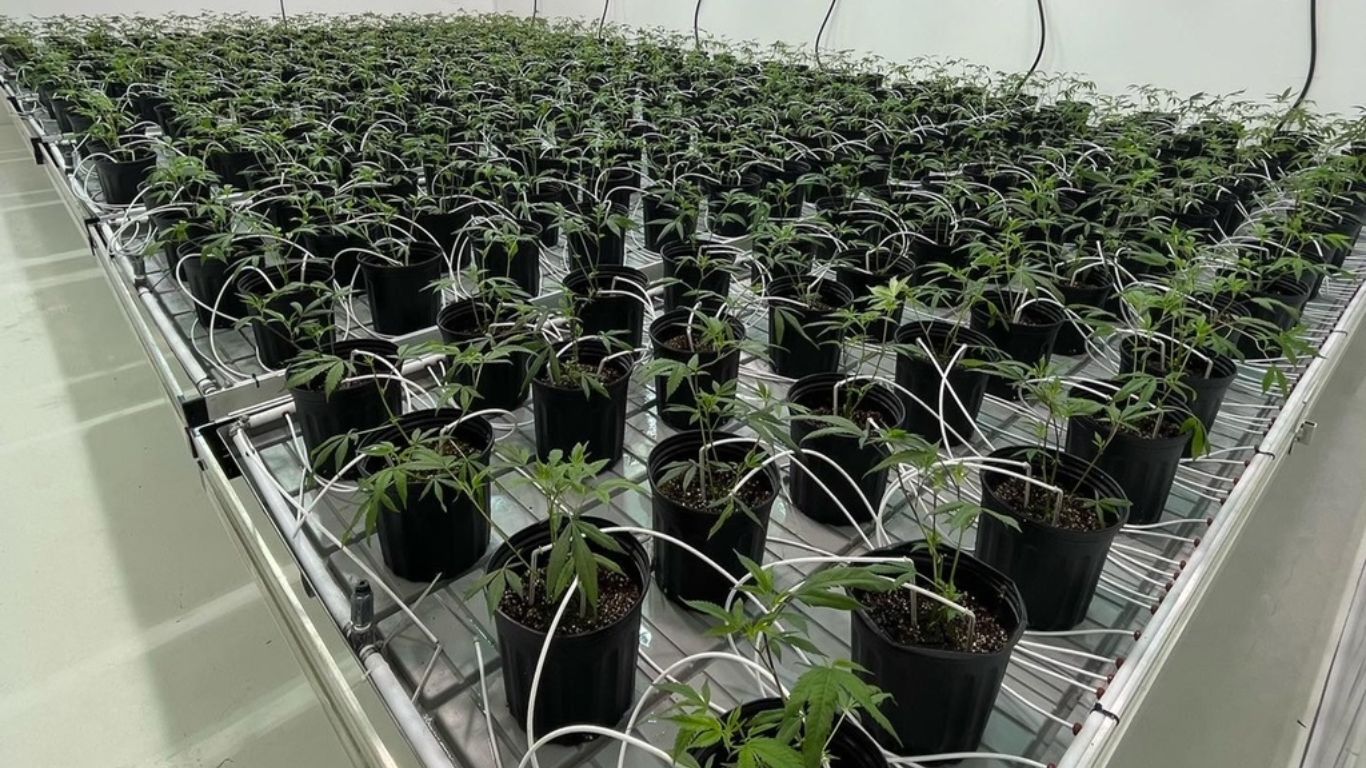
It’s been a smoke-filled week for much of Canada—just not the fun kind, unfortunately.
At StratCann, we published stories on Newfoundland’s strong cannabis sales ($70 million worth of bud sold on the rock last year), New Brunswick’s issuance of an RFP for a third-party logistics provider, changes to cannabis regs in Saskatchewan, and a lost American who brought a little too much sand to the beach. (Also, if distribution and supply chains are up your alley, we also published an overview of how the current models differ across the country!)
Elsewhere, though, headlines in the industry continued to look rather grim—at least for the corporate parts of it.
The bad news started in the retail sector, as the national chain Fire & Flower filed for creditor protection, citing “high operational costs and intense competition,” said the Globe and Mail. C3 president George Smitherman said there’s likely more pain ahead this year in the form of bankruptcies and job losses, unless changes are made to help the industry.
Cannabis producer Atlas Global announced layoffs for 50 employees this week as the company says it plans to relocate from Gunn, AB, to Chatham, ON. Kieley Beaudry of the Alberta Cannabis Micro License Association called it another sign of how hard things are becoming. “We have not yet seen the bottom,” Beaudry told the CBC. “The balance sheets do not look good.”
Police in Chatham Kent investigating an arson at a True North Cannabis Co. store in Wallaceburg, Ontario. Police said the fire was contained and that there were no injuries.
Aleafia Health is being bought out by Red White & Bloom Brands. Both companies are based out of Toronto, though RWB’s focus is mainly on the U.S. markets. Aleafia CEO Matt Sale said the acquisition was largely meant to repair their balance sheet and pivot them toward American markets a bit more.
TerrAscend has sold its Mississauga head office, reports MJBizDaily. If you think cannabis is a tough business, try being in commercial real estate right now: the building reportedly went for around $4.5 million under the asking price.
A former Director General of Health Canada’s Non-prescription and Natural Health Products Directorate who is now running a consulting service wrote an opinion piece outlining what he says are the lessons the US should learn from Canada’s efforts to create a regulatory framework for CBD.
In light of the industry’s challenges, Rami El-Cheikh penned an op-ed in the Toronto Star this week declaring it a “make-or-break year for Canada’s cannabis industry.” The report seemed to channel the vibes at this year’s Lift Expo—gone is much of the exuberance that once dominated these events, replaced with a feeling of anxious worry, it seems.
In First Nations cannabis news, a Mississaugas of the Credit First Nation man who operates a cannabis store in Toronto without a license, claiming traditional rights, is one of the driving forces behind the court challenge of the First Nation’s recently-adopted constitution.
And on The Big Story podcast this week, Akwasi Owusu-Bempah was a guest to discuss the question of whether it is time to re-write the Cannabis Act.
In less bearish business news, a small grower-owned processor in West Kootenay marked its first delivery this week, according to the Valley Voice. The small company of 12 employees, called Antidote Processing, is mainly focused on processing raw materials from local craft growers, and is optimistic about the craft industry “as all these big players are closing their doors and crumbling, but we have the culture, the ethos and energy of legacy growers.” said their CEO Shannon Ross.
Amidst their fight with local law enforcement (and a week after being denied an exemption from certain regulations by Health Canada), the Victoria Cannabis Buyers’ Club met with the regulator this week, reports Capital Daily. According to VCBC, Health Canada was interested in hearing about “how they could make their [medical cannabis] program more like ours,” said Ted Smith, calling the meeting “ironic.”
Down in the United States, Tilray is being sued for dropping plans to run a line of Bob Marley-branded cannabis products. Docklight Brands claims that a Tilray subsidiary stopped paying them royalties sometime after their 2021 merger with Aphria. That in turn meant that Docklight couldn’t pay the Bob Marley estate. One must wonder what the man himself would have thought about this kind of ultra-corporate tomfoolery.
And finally, a team of French researchers claims to have produced a drug to help combat cannabis dependency. The drug apparently works by preventing THC from binding to the endocannabinoid system—similar to how Naltrexone works on opioids. It’s early days, but the researchers believe this could present a novel way of approaching cannabis dependency.












